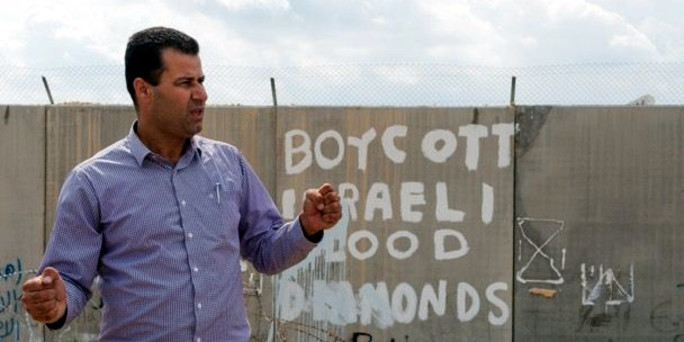Category: Press Releases
-
Video : Demolished Home In Wadi Joz , East Jerusalem
https://www.youtube.com/watch?v=AMO1lIhzZyg&feature=youtu.be 21 May 2016 | International Solidarity Movement, Al-Quds team | Jerusalem, occupied Palestine The 14 members of Abu Sadam’s family remain homeless after their home was destroyed by the Israel Army in the early hours of Tuesday morning in the Hizbet area of Wadi Joz, Jerusalem. The family are calling for solidarity…
-
Abdullah Abu Rahmah to be Charged at Ofer Military Court
UPDATE 21ST May | ISM media team | Ramallah, Occupied Palestine The prosecution have until Sunday the 22nd of May at 4pm to appeal the military Judges order to release Abdallah Abu Rahmah. They are expected to do this and there will likely be retried tomorrow at Ofer Military Court . ———————————————————————————————————————— The military trial…
-
Human Rights Defender Abdullah Abu Rahma arrested and detained
15th May 2016 | International Solidarity Movement, al-Khalil Team | Bil’in, occupied Palestine UPDATE 23d of May 2016: Abdullah was released from military prison on the evening of the 22nd. He must return to military court on the first of June for a hearing of the appeal of the military prosecution against the decision to…

